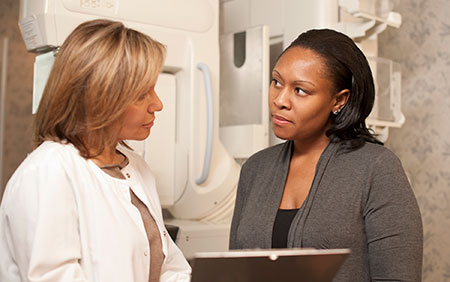Mammography Saves Lives
Hester Hill Schnipper, LICSW, OSW-C Program Manager Emeritus, Oncology, Social Work
JULY 27, 2020
Mammography Screenings Help Prevent Breast Cancer
A recent study from Sweden, published in Cancer, finds that early mammography screening reduced the chance of dying from breast cancer within a decade by 41%. The study also reported a 25% decrease in the incidence of advanced breast cancer among women who had been screened.
We have known for years about the importance of early detection. However, there has been a lot of research and discussion about improving breast cancer treatments that may make the timing of diagnosis a little less important. And, now, there are conflicting recommendations from different organizations about how often women should have this screening test.
The American Cancer Society recommends mammography annually for women 50-54 and every two years for women 55 and older. (Note: these are screening mammograms for women without a personal history of breast cancer or related health issues.) Other groups recommend annual mammograms for women from 50 to 69.
There is also the debated question of when a woman should begin to have mammograms. The U.S. Preventive Services Task Force issues guidelines that recommend beginning at age 50, while the American Cancer Society suggests age 45. There is also an acknowledgment that any one woman should have this discussion with her doctor, considering her own family history and risk factors.
This is a conversation that inevitably stirs up strong feeling among women who have had breast cancer. Especially those women whose cancer was identified by a mammogram argue passionately for the importance of earlier and more frequent screening. It is tough to move away from the personal, if I had waited another year for a mammogram, my cancer would have been worse, to a larger public health perspective that considers whole groups of women.
Back to the Swedish study: It had a different design than many studies and came at the observations from an unusual perspective. Looking at the death rate from breast cancer within 10 years after screening, the researchers compared women who had been screened with those who had not. Since they were considering the same set of years, the changes and improvements in breast cancer treatment were irrelevant to their question. Both sets of women had access to whatever the newest and best treatments were available. Almost 550,000 women were included in the study, about one third of all eligible women in Sweden.
I know that writing about the importance of mammograms to people who have had cancer is preaching to the choir. But, since there has been ongoing dispute about the timing and frequency of the screening, this study is an important reminder of the potential value of early detection via mammography.

